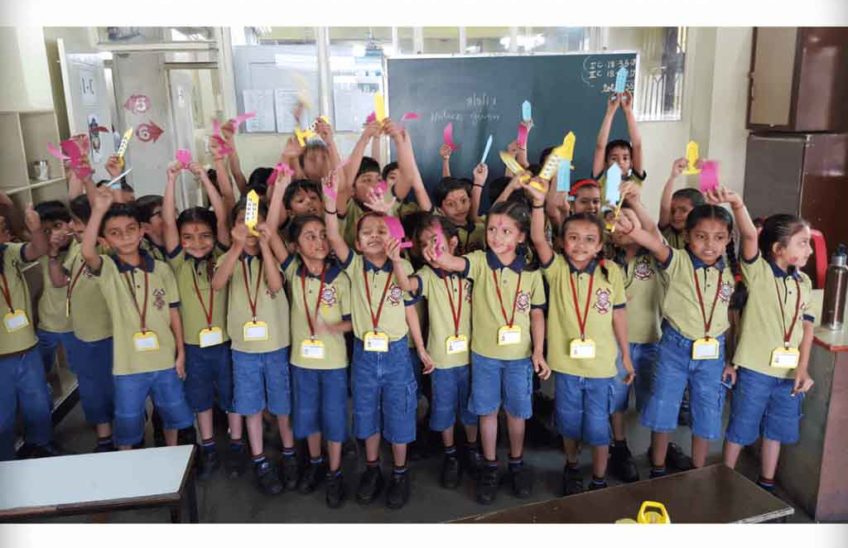
What are the key principles of early education?
Every child has the chance to build a solid foundation for their lives through early education, whether it be through practical learning or curriculum-based instruction. We as an educational institution adhere to a number of values to guarantee that every student graduates with the character and skills necessary to forge a successful future for themselves.
The key principles of early childhood education focus on providing a solid foundation for children’s development and learning during their early years. These principles vary slightly depending on different educational philosophies and approaches, but generally, the following principles are considered fundamental
1. Play-based learning: Recognizing the importance of play as a natural and essential activity for children’s growth, early education emphasizes play-based learning. It allows children to explore, experiment, and make sense of the world around them while promoting creativity, problem-solving skills, and social interaction.
2. Individualized learning: Early education acknowledges that each child is unique and has different strengths, interests, and learning styles. Therefore, it emphasizes individualized learning approaches, tailoring educational experiences to meet the needs of each child and supporting their holistic development.
3. Holistic development: Early education focuses on the overall development of children, considering their cognitive, physical, social, emotional, and creative aspects. It aims to provide a balanced and comprehensive education that nurtures all these areas of development.
4. Hands-on experiences: Early education values hands-on experiences and active engagement in learning. It encourages children to manipulate objects, conduct experiments, participate in sensory activities, and explore the environment to enhance their understanding and develop critical thinking skills.
5. Responsive and nurturing relationships: Recognizing the significance of secure and nurturing relationships in children’s learning and well-being, early education prioritizes building strong connections between educators, parents, and children. It promotes a supportive and responsive environment where children feel safe, valued, and encouraged to express themselves.
How does early education help children develop bright futures?
Early education plays a vital role in laying the groundwork for children to develop bright futures. It provides a solid foundation for their intellectual, emotional, and social growth. By engaging in play-based learning activities, children develop essential cognitive skills such as problem-solving, critical thinking, and creativity. They are encouraged to explore and experiment, fostering a natural curiosity that fuels a lifelong love of learning. Early education also places a strong emphasis on language development, helping children build a solid vocabulary, strong communication skills, and the ability to express themselves effectively.
Through collaborative activities and interactions with peers, preschool students learn important social skills like sharing, taking turns, and empathy. They also receive guidance and support from nurturing educators, promoting a sense of security and self-confidence. This foundation enables children to develop positive self-esteem, resilience, and the ability to effectively manage their emotions, all of which contribute to their overall well-being and success in future educational and social endeavours. Ultimately, early education sets children on a trajectory for lifelong learning, equipping them with the skills, knowledge, and attitudes needed to thrive academically, socially, and emotionally, paving the way for bright and promising futures.
How important is the role of parents in early education?
The role of parents in early education is crucial. They serve as the child’s first teachers, providing love, support, and guidance in their early learning experiences. Parents play an active role in fostering their child’s curiosity, language development, and social skills, creating a strong foundation for future educational success.
Parental involvement in early education builds a strong partnership between home and school, ensuring consistency and continuity in the child’s learning journey. By actively engaging with educators, parents gain a deeper understanding of their child’s progress, strengths, and areas for growth. They can also reinforce learning at home, extending educational opportunities beyond the classroom and enriching their child’s overall development. The active involvement of parents nurtures a sense of belonging, security, and motivation in the child, positively impacting their educational outcomes and long-term success.
Frequently Asked Questions
Q. What kind of activities should be included in early education to ensure future success?
A. Early education is essential for the development of a child’s cognitive, physical, and social skills. It is important to provide children with activities that are engaging and stimulating to ensure they have the best chance of success in the future. From teaching basic literacy and numeracy skills to introducing them to creative arts and sciences, there are a variety of activities that can be included in early education programs.
Q. What role does technology play in early childhood education?
A. Technology is rapidly changing the way in which early childhood education is delivered. It has become an essential part of the educational process, as it provides a range of tools and resources that can be used to engage and motivate young learners. Technology also helps to bridge the gap between traditional teaching methods and modern approaches, allowing educators to provide more personalized learning experiences for their students.
Q. What are the benefits of early education?
A. Early education plays an important role in the development of a child’s cognitive, social, and emotional skills. It helps to equip children with the necessary skills they need to succeed in life. Early education also helps to foster a love of learning and create a foundation for future academic success. It is important for parents to be aware of the benefits that early education can provide their children, as it can have long-term positive impacts on their development.



Leave a Reply